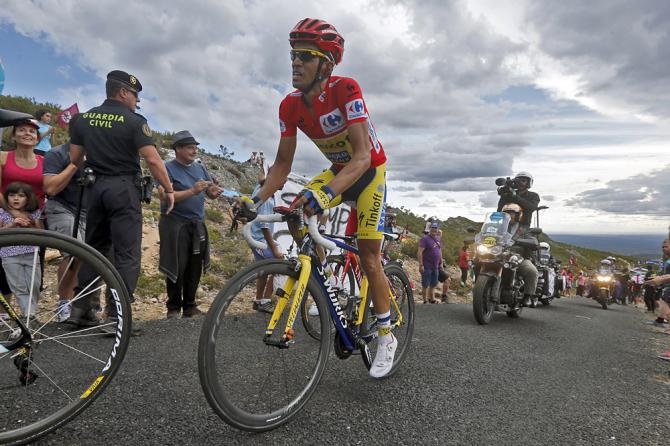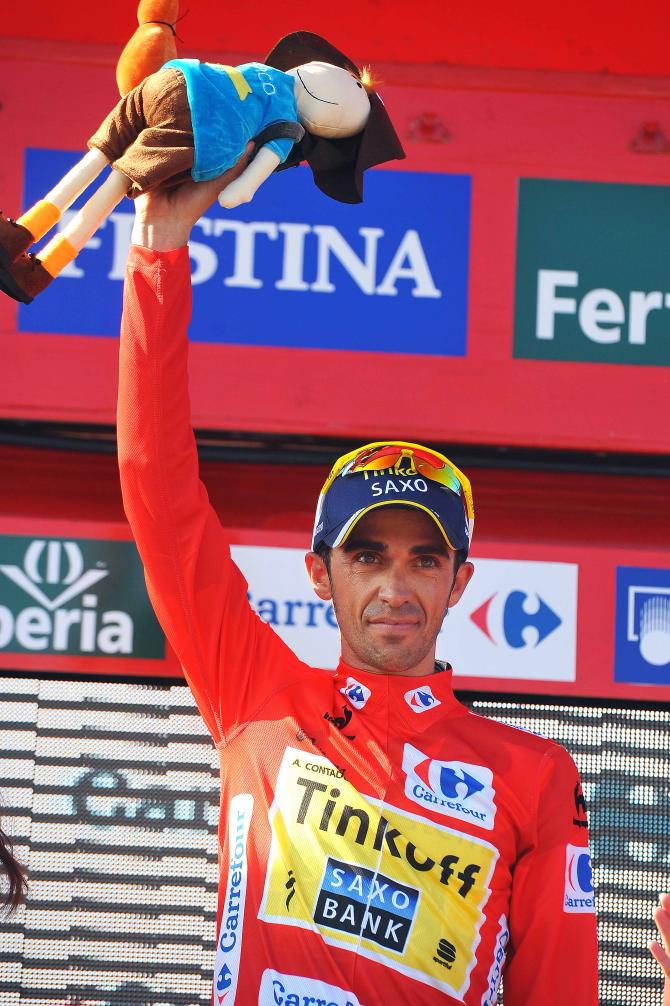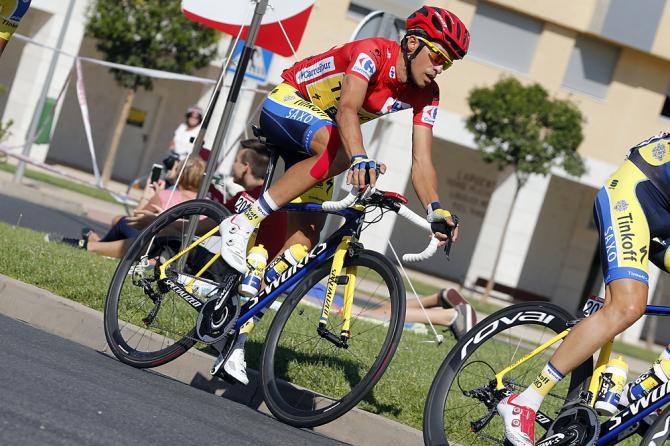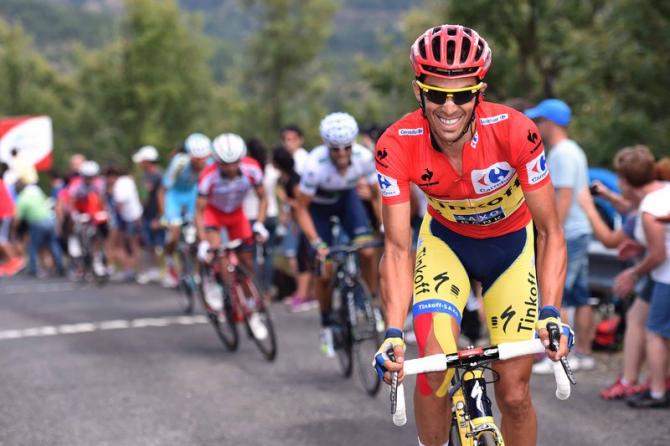Contador: I can be satisfied with this first climb
Vuelta leader opens up gap on Urán and Valverde, loses time to Froome




Alberto Contador (Tinkoff-Saxo) preferred to see the glass as half-full rather than half-empty after stage 14 at the Vuelta a España on Saturday. He lost contact with Chris Froome (Sky) and Joaquim Rodriguez (Katusha) in the final metres of the Camperona climb but was - on the other hand - able to gain time on Alejandro Valverde (Movistar) and Rigoberto Uran (Omega Pharma-QuickStep).
As a result, whilst Valverde has dropped to 42 seconds down from being 20 seconds back and Uran has slid down to fifth, Froome has closed the gap and is now at 1:13. A mixed bag of results, therefore, but as Contador pointed out, overall he is edging clear of his rivals.
“It was a really steep climb, and the last few metres were very difficult,” Contador admitted, “but overall I have to be happy with that.
“It’s true that two riders [Froome and Rodriguez] have gained time, but Alejandro and Uran were both dropped.”
He was not surprised, he said, that Froome had managed to stage a comeback. “I was certain that he had paid a high price for the rest day, sometimes that happens to riders, and that’s why his time trial wasn’t so good. But he’s getting better.”
On the Lagos de Covadonga during stage 15, Contador says he is expecting attacks, “but it’s a climb I like.” That said, he last tackled the Lakes of Covadonga in the 2012 Vuelta but his memories of the climb that year are hardly positive.
Contador tried, on five separate occasions, to drop race leader Joaquim Rodriguez (Katusha) and he failed on all of them, finally settling to cross the line alongside Rodriguez and Alejandro Valverde (Movistar).
Get The Leadout Newsletter
The latest race content, interviews, features, reviews and expert buying guides, direct to your inbox!
Another worry for Contador is his team, notable by their collective absence on the final climb. Yet he was anything but critical of them. “They were working very hard for me in the first part of the race, and that’s the part you see the least on television. I have full faith in them.”
Alasdair Fotheringham has been reporting on cycling since 1991. He has covered every Tour de France since 1992 bar one, as well as numerous other bike races of all shapes and sizes, ranging from the Olympic Games in 2008 to the now sadly defunct Subida a Urkiola hill climb in Spain. As well as working for Cyclingnews, he has also written for The Independent, The Guardian, ProCycling, The Express and Reuters.
